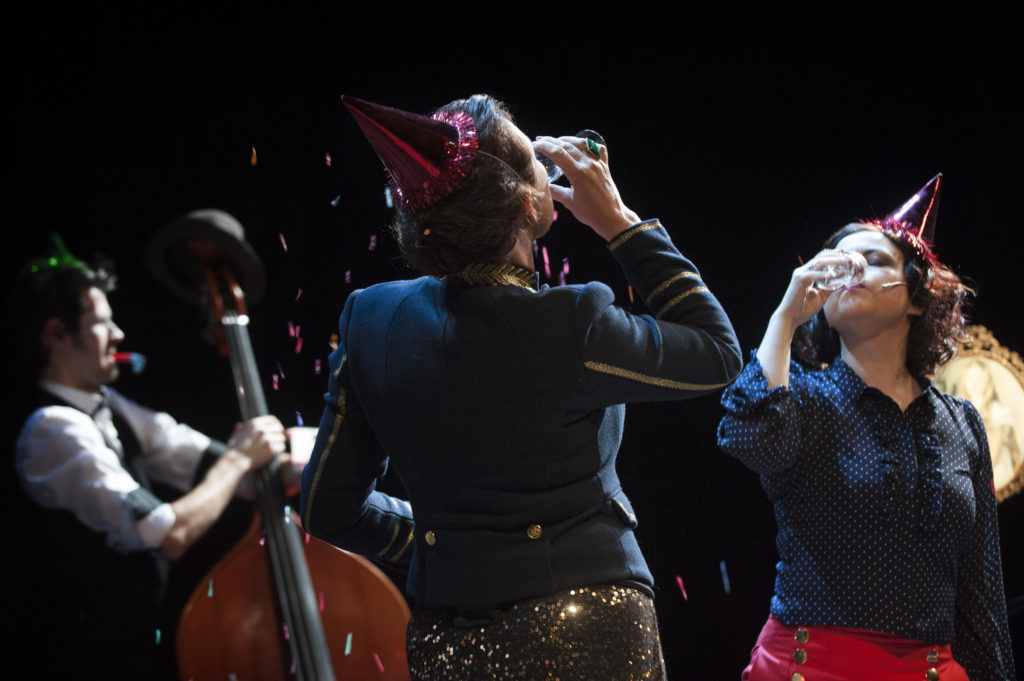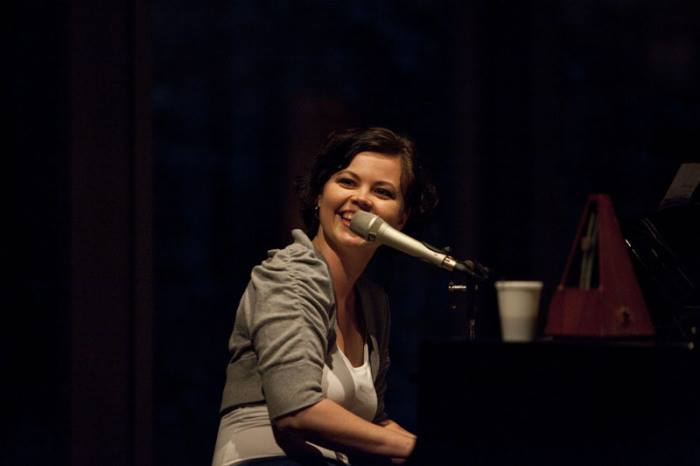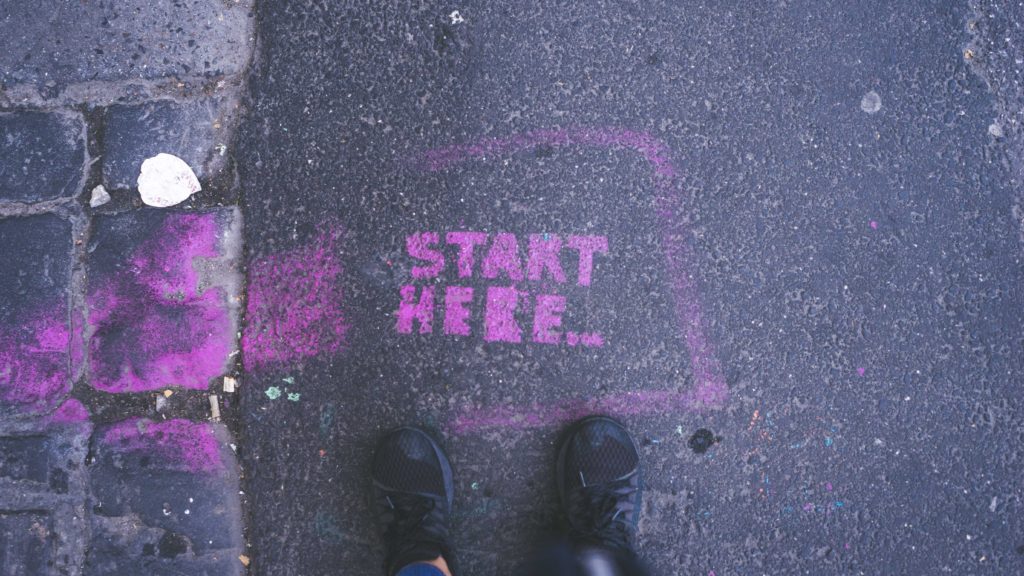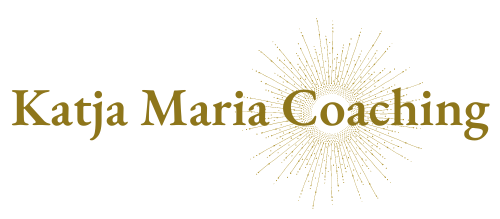October is here! And I’m celebrating the 10th anniversary of my company Katja Maria Music! Actually, I’ve been a teacher and artist for more than 2 decades, but 10 years ago I decided to set out on the path of an entrepreneur. And that calls for a celebration! Many celebrations actually: 10 years of being a business owner, 25 years since my first real teaching job (did I tell you, I was hired for my first teaching job when I was 16?), almost 30 years since I set out on a path in music and performing arts…and October also happens to be the month of my birthday!
Here are the most important lessons I’ve learned from working in the field of voice, music education and performing arts over the past 20+ years, and from 10 years of running a solo-preneur business.

Celebrate more
This year, it dawned upon me that in the whole history of my creative career, I had never celebrated any milestones..! At least not in a conscious way. Yes, I’ve had opening night celebrations and end-of-the-theater-tour celebrations of shows and productions I’ve participated in as a singer and musician. But that was pretty much it.
In my business, for example, I have never celebrated an anniversary before. (Boy, am I gonna celebrate this year! In fact, I’m gonna celebrate a whole year!) In my creative career, too, I’d be more focused on the “big end goals” than on all the smaller milestones on the way. I guess it’s something we artists often do. We usually start off from a spark of inspiration, a project we dream up, or a deep longing to learn something we feel super excited about. And then, as we start taking tangible steps toward that exciting thing, we’re so focused on the end goal that we forget to celebrate the little victories along the way.
I remember often feeling deeply discouraged in singing lessons back in the days, when most of the feedback was focusing on what wasn’t going well. Certain goals felt totally out of reach because the progress and the “baby steps” along the way hardly got any positive attention. While it’s true that being a singer is like being on a journey of lifelong learning, we all can use some motivation on that journey. And nothing motivates us better than the feeling that we are succeeding at whatever we are attempting. That we can see and hear results, even if those results are “baby steps”. Yes, you’ll see me jumping up and down from excitement when a singer I’m working with is having a moment of success. And there’s SO many moments of success in a lesson. Even the baby steps on your vocal journey, in your creative project or in your creative business deserve to be celebrated!
I say, celebrate the beginning of a journey too! I wish I had popped up a bottle of champagne when I inscribed my one-woman-company in the Dutch chamber of commerce, done a happy dance every time I embarked on a new vocal technique quest, or shared an amazing dinner with the whole creative crew every time a new project started!
But what do we artists typically do instead? We get together and often start our first meeting with complaining about how difficult it is to get your project booked nowadays. We start our singing practice by focusing on all the obstacles and obsessing about all the reasons we (think) we’re not “there” yet. Talk about setting up a totally negative perspective for your whole project from the start… No more of that for me!
Be aware of the obstacles on your way, but even more importantly: put your energy and effort into looking for and trying out different possible solutions. As the saying goes: “Energy flows where attention goes.” If your focus is constantly on the obstacles, that’s what you’ll experience more of! Be grateful for your creative work, and your creative work will provide you with many blessings.

Make a plan
Don’t get me wrong. I can perfectly well put together a kick-ass lesson plan, build fabulous curricula for vocal and music education, design exciting workshops, set up a structure for your singing practice, and so on. I’ve got an academic background, a Master’s degree in Music Education, a teacher certification in Complete Vocal Technique, and have been spending the past decade specializing in vocal techniques and pedagogy after all 😉
But, when it came to my artistic career, I used to be like: “Ugh. A plan.” I used to be one of those creatives who would cringe at the thought of planning. I thought it would restrict my spontaneity, stifle my creativity… And I was afraid I might end up getting bored with my plan. So I never planned for things like my own singing practice, my artistic projects, my business goals, for YEARS. I was all about following my enthusiasm.
There’s nothing wrong with following your enthusiasm. In fact, feeling enthusiastic is a sign from your Inner Guide that you’re on the right track. The problem with following your enthusiasm without having a plan, however, is that it will take you much longer to reach your goals.
Have you ever heard of “Shiny Objects”, for example? All the interesting stuff you could be spending your time and energy on. If you don’t watch out with these Shiny Objects, you might find yourself having tons of ideas but never get any of them executed. Or jumping from one goal to the next. You get started studying Jobim’s “Chega de Saudade” and are determined to nail the challenging intervals in the melody. You love the song and are practicing it, and then, a couple of days later, you hear this really beautiful other song and “Chege de Saudade” suddenly flies out the window. You start practicing that other song, and then, you read this interesting article about overtone singing and get so intrigued by it that you decide you simply just must learn that thing too. Sounds familiar?
The problem being on a constant chase of Shiny Objects is that it leaves us feeling like we’re not making any progress, which results in frustration. (Trust me, I’ve been there).
Planning also saves you from being in this constant reactive mode, trying to deal with everything that goes on in our lives and creative careers on a daily basis. We’re drowning in to-do lists! And everything on that list seems “urgent”. Like Andrew Simonet writes in his wonderful book “Making Your Life As An Artist” (Read the book! Read it!)
“Most artists spend the vast majority of their time dealing with immediate problems. The PR package that was supposed to go out two days ago. The grant that’s due Friday. The communications that stream in all day every day. Planning lets us spend a small amount of time on the big, long-term things that are most important to us. And that means those big things will actually happen. Planning shifts artists from reactive to proactive.”
Nowadays, I do 2-year, 1-year, quarterly, monthly, weekly and even daily planning. Drawing from my own favorite productivity and planning systems, I’ve designed a system that works great for me. Once you get clear on your top priorities and start planning those in your schedule, things get much clearer. And it doesn’t stifle my creativity at all, quite on the contrary, it makes it possible for me to use my creativity in a much more focused and productive way.
I also have gotten much better at identifying my personal Shiny Objects, and figured out a way to handle the constant stream of ideas: I write my ideas down in an “idea file”. Once they’re written down, I know I can return to them at a later point – if they happen to be my top priority then.
Start before you’re ready
I remember sitting in a job interview once, about 10 years ago, and the person interviewing me was enthusiastically waving my Curriculum Vitae in my face. “What an impressive C.V. you have! I cannot believe it you’ve already done so much at your age!”.
Wanna know the secret? I’ve always started before I was “ready”.
I was hired for my first, paid teaching job when I was still in high school. And the truth is, I had been “teaching” long before that too. My first steps into teaching, and my first informal teaching jobs, took place already when I was about 13 years old. I played the flute in the local community orchestra, where I’d just learned to play the flute a couple of years ago. One day, my flute tutor told me something in the lines of: “I think you’ve got it figured out now. Could you show these kids how it’s done?”
Was I “ready”? Did I “know how to play the flute”? (I’d never had a formal lesson besides the group tutoring in the basics of how to find your way around the basics of that instrument, the rest I’d sort of figured out myself by doing it). Did I “know how to teach”? Of course not! I was a largely autodidact teenage flutist, who suddenly found herself showing younger kids how to play the flute.
Thinking about it afterwards, I must say that was a brilliant concept. What better way to deepen your own skills and understanding of something, than by teaching what you have learned to someone else? I could have spent years studying pedagogy and teaching didactics, done supervised teaching practice (which I all did later when I went on to study music education and vocal pedagogy), and have waited until I was “ready”. But I would still have been a beginner then!
Starting “before I was ready” has been what’s kept me growing, opened up doors to projects and ventures I wouldn’t otherwise even have been dreaming of. Another secret to getting things done is “having just a little bit too little time to get the thing done”.
One of the things I do in my business, is being a voice over artist. How did I end up being one? One day, I received a phone call from a voice over company asking if I’d be willing to send them a demo to be considered for a project needing a Finnish voice over. My demo was to be sent within just a couple of days.
I had no previous experience in voice overs, I had never made a voice over demo before, I knew nothing about pricing in that business. Was I “ready”? Definitely not! I even had a horrible cold right then, and my voice sounded different than usual. Still, I decided to take the opportunity and go for it.
For the coming 48 hours, I searched the internet on all information I could find on voice over demos. I put out a request for help on my social media, asking to be connected with someone who could help me with a couple of questions related to the voice over business. Within a couple of hours, I was connected with one of the top voice over artists in The Netherlands, who gave me helpful advise. I wrote my own texts for a couple of voice overs of different types, recorded my demo, and sent it off with a little remark that I unfortunately did have a cold right now. And I landed the job! Out of that first project, I ended up landing another one, and another one, and before I knew it, my voice became the Finnish voice of a global company.
Imagine what I would have missed out on, if I instead would have thought: “48 hours… I’ll never make it, I’m not ready, I don’t know how to do this…”. While there’s a lot of truth in the saying: “The secret of success is to be ready when opportunity comes knocking”, I believe you never feel completely ready. However, opportunity knows when you’re ready. And then it’s up to you if you’re going to listen to the feeling of fear or just decide to go for it and see what happens.

Be accountable to someone
The best way of moving your exciting goals forward is to be accountable to someone. Here’s how I make those needles move in my own projects: I make sure there’s someone that I have to “report to” and show my work to.
You can use friends or colleagues as accountability partners, just as long as you watch out for the trap of backing out too easily. What I personally do, when I really, really wanna make something happen, is contact one of my mentors or coaches to be my accountability partner. I make sure it’s someone who I highly respect. If I have an appointment with a mentor or coach, I’m not going to back out of my appointment “because I was too busy”, or not have any progress to show when we meet up, because I wanna show up with my best self for that person who I respect. And I also respect that person’s time too much to be vague and move appointments around just because I have nothing to show. Remember, showing your work to an accountability partner is not about showing your “perfect”, “final” draft. It’s about showing progress, which makes sure you gain momentum and keep that ball rolling.
Investing money in advance in our project increases our commitment too. There’s a significant difference in commitment in things that we “get for free”, and things we invest money in. We don’t wanna waste that money, so we show up to do the work. Or maybe somebody else is investing money in you, and you cannot let them down. They are, after all, believing in your creativity, talents and skills strongly enough to invest money in you.
The stakes have to be high enough for you to actually care enough about getting your thing done by a certain time.
Why do you think many people practice like maniacs the week before their concert? Why do you think their practice and focus is at the best then? Because there’s a deadline coming up, the stakes are high. The upcoming concert is what’s holding them accountable to actually practicing. (Unfortunately, if that’s the only strategy, it also creates a lot of unnecessary stress because you’re trying to do everything in such a short time).
Sometimes, having a fire burning under your butt is a great method of achieving your goals. If you wanna move towards your goals at a steady pace without having to feel a constant fire under your butt, I recommend you make a plan that includes regular accountability appointments. Like the ones we do in Personal Vocal Trainer – my mentoring program for vocalists and singing teachers.
It’s gonna take a lot of first tries, first drafts, and first versions
I know many brilliant singers and artists who get stuck in their tracks before they even get started, because they expect the thing that they want to learn or make, to sound or to be “great” right from the start. Canadian writer Margaret Atwood has been quoted to say: “If I waited for perfection, I would never write a word”. If you want to gain momentum, be productive and really move your goals forward, you got to show up to do the work every day. Progress is what counts, not perfection.
In every project, from learning a new song, to mastering a new vocal technique, to writing a song or producing your own theater show, there are many first versions needed. Writing a first draft of a chorus, doing try-out concerts, and launching “version 1.0” of your product. Take my project The More The Mary, for example. What started as a duo playing living room concerts, resulted in a self-produced theater show that toured in Dutch theaters.
My services as a teacher and vocal coach are also constantly developing. I’ve been teaching voice online for 5 years now, and my Online Classroom constantly keeps evolving. Programs get fine-tuned and updates are added so they get even more awesome. For example, because so many of you kept asking for it, my signature program Sing Everything is now featuring new add-on modules, where you can broaden your sound palette even further by advanced study in the vocal modes, sound colors and vocal effects, dive deeper into the stylistic elements of specific genres, or learn more about vocal anatomy and pedagogy together with other passionate voice geeks!
Next time you find yourself stuck because you seek for perfection, consider this: if I showed up to work on my goal today, it was progress. And that’s what counts. Even the progress that seems “backwards” counts. Maybe we “failed” at something that day. What can you learn from that?
Everybody won’t like you, and that’s ok
Don’t waste time trying to fit in everywhere, serve everyone, please everyone, or worry about if everyone likes your art, your sound, your repertoire… Because here’s the truth: Everybody won’t like you.
Now, I know for many singers the thought of not being liked is an awful one. We wanna be liked. And that’s linked to a very basic human need. Deep down, everyone wants to be loved, seen, accepted. But mixing this up with how our art is received by other people, is guaranteed to make you unhappy.
Everybody won’t like you – and that’s ok! Focus rather on being you and by doing so, attracting to you the people who do like you, resonate with your message and with your art.
Recharge your creative batteries
Last, but definitely not least, if there’s anything I’ve learned from all these years being an artistpreneur, it’s the importance of recharging your creative batteries. And I don’t mean just taking vacations. I mean taking breaks during your working day, taking breaks during your practice sessions, making time to rest and reset during your week, and making time for things that recharge you.
I can speak from experience about what happens if you slack in any of the above. And it ain’t pretty.
We live in a world where we’re surrounded by a constant flow of information and input. This takes up a lot of space in our minds and robs us from a lot of energy. And on top of that, we also seem to wear our busyness as a badge of honor. Our lives are busy, and having a career as a creative usually means there’s a lot of different things going on simultaneously.
Yet, you can’t run creativity, an artistic career or a business on empty batteries. Being ‘too busy’ to take breaks, have downtime in your daily and weekly schedule, take a vacation (it doesn’t have to mean distant, fancy destinations), or doing something non-work related that just brings you a lot of joy, is based in a fear-mindset that believes in scarcity. It’s your “Inner Starving Artist” running the show.
Here’s some things that recharge my batteries:
Walking. Being in nature. Yoga. Cooking. Trying out new recipes. Listening to music mindfully, not as in “having music playing in the background”, but actually sitting down to enjoy what I’m listening to. Going to see a concert, theatre show, dance performance or exhibition. Meditating. Going out on a drive or a bike-ride without having a real plan. Listening to an inspirational podcast. Connecting with a good friend. Watching a sunset or a sunrise. Watching stars. Watching the sea. Sitting on a park bench doing nothing 🙂
How do you recharge yours?
…now over to you!
What’s the most important thing that you have learned from being an artist or business owner, that you would pass on to future artists and “artistpreneurs”?
If you’re just starting out in your artistic career, what kinds of wisdoms would your future self tell you?
I’d love to hear from you! Leave a comment here or connect with me on Instagram or Facebook.
